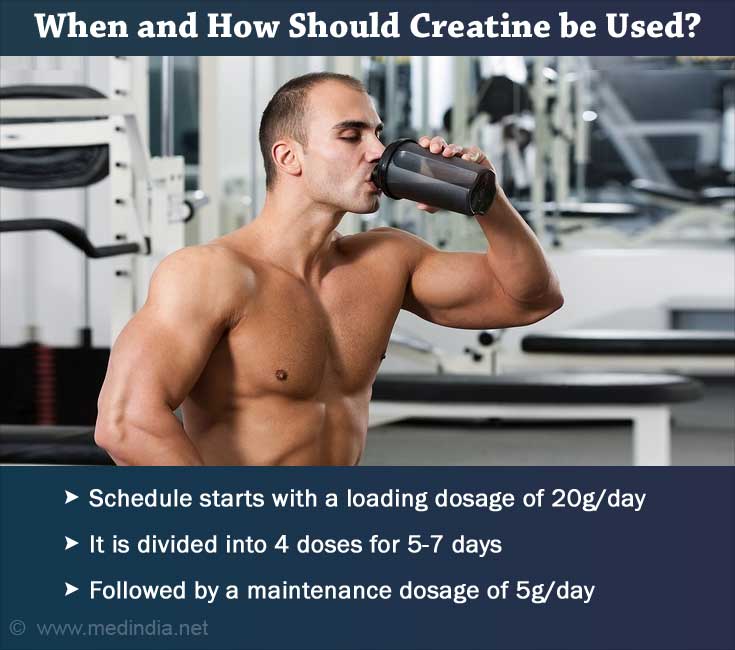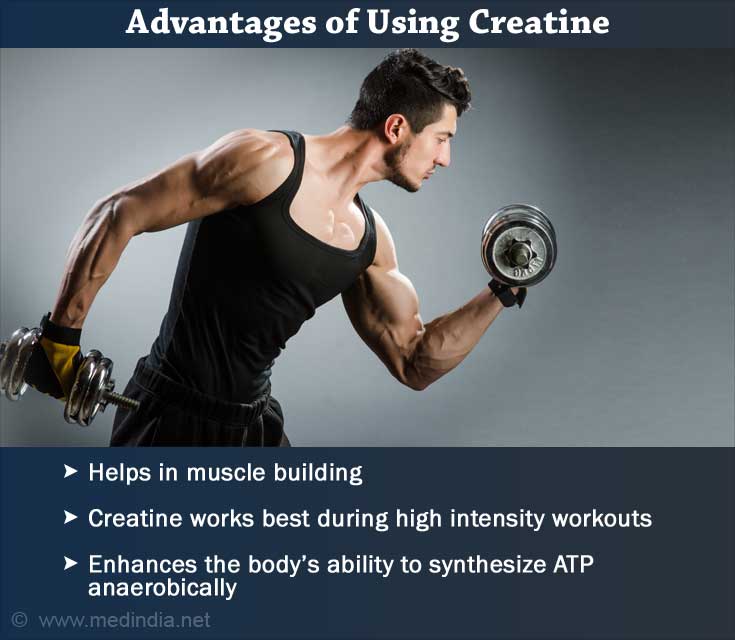- Creatine - (http://www.mayoclinic.org/drugs-supplements/creatine/safety/hrb-20059125)
- About CREATINE - (http://www.bodybuilding.com/store/creatine.html)
- An Overview of Creatine Supplements - (http://www.webmd.com/men/creatine?page=2)
About
With improved performance being the main goal of sports people, many of them have turned to supplements and ergogenic aids. Creatine is one of the most popular supplements and enhances energy production, which gives athletes an extra burst of strength.
How does Creatine Work?
In the body, creatine is used as creatine phosphate, which is responsible for producing short bursts of energy. To understand the action of creatine in the body it is essential to know about the basic muscle types and methods of energy production.
- There are two types of muscle fiber in the body – type I and type II.
- Energy (ATP) can be produced in the presence of oxygen – aerobically, or in the absence of oxygen – anaerobically.
- In type I muscle fibers the production of ATP is done aerobically.
- In type II muscle fibers, creatine is broken down anaerobically to produce quick, short bursts of energy.
When a creatine supplement is used, the creatine stores in the muscles are elevated and this boosts the ability of the muscles to perform high-intensity; short duration workouts.
When and How Should Creatine be Used?
Creatine is most-commonly taken after a workout. The typical creatine supplementation schedule starts with a loading dosage of 20g/day, which is divided into four doses for five to seven days. This is followed by a maintenance dosage of 5g/day. It has been found to be more effective when taken in conjunction with carbohydrates.
As is the case with all supplements creatine also has its share of pros and cons.

Advantages of Using Creatine
- Research has shown that creatine works best during high intensity workouts, which are of short duration and is not as beneficial for endurance activities.
- Creatine has been found to enhance the body’s ability to synthesize ATP anaerobically.
- It helps in muscle building. A process called creatine loading is followed when a creatine supplement is first used. The increase of creatine in the muscle fibers causes water retention leading to thickening of the muscle fibers. This increase of creatine and water in the muscles triggers protein synthesis and lowers protein depletion. Simply put, creatine creates the apt environment for muscle growth.

Some studies have suggested that creatine speeds up recovery while others say that it does not and that rest is required for muscle recovery.
Is Creatine Safe?
Being a naturally occurring substance, it is a common assumption that creatine is safe. Although most healthy adults can consume creatine over a long duration without any problem, there is contradictory research.
Dehydration is a common side effect of creatine supplementation and care must be taken to stay well-hydrated.
For those with kidney or liver diseases, creatine is not recommended. Similarly, those on medication for diabetes are advised against using creatine supplements as their interaction or mingling can have dangerous consequences.
Consuming creatine with caffeine and/or ephedra can increase the risk of side effects.
Children under the age of 18 must refrain from using creatine supplements, and also pregnant and lactating women.
Creatine can also have the following side effects in some cases:
- Fatigue
- Weight gain
- Difficulty in breathing
- Diarrhea
- Anxiety
- Headache
- Fever
- Renal problems
- Nausea and vomiting
- Rash
The cons seem to outweigh the pros when it comes to creatine but there are many individuals who use it. It is best to consult a health care professional before consuming creatine supplements.






